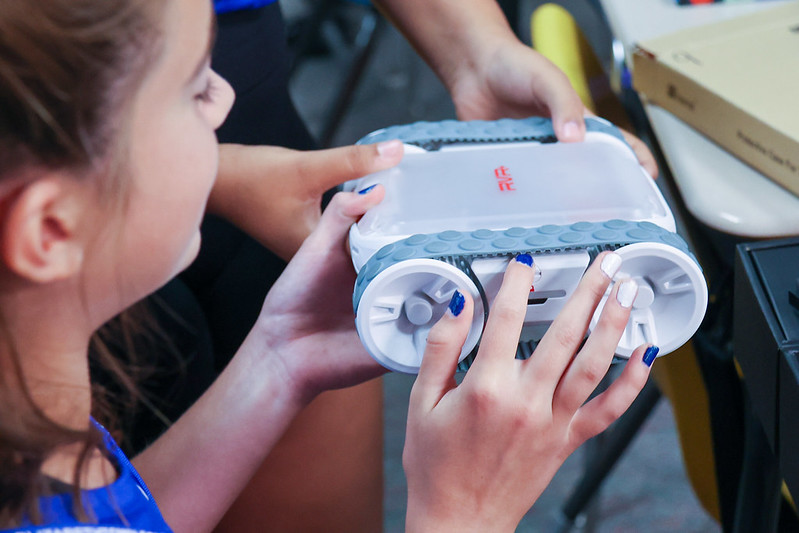Science in Motion
Science in Motion
Elizabethtown College’s motto is to Educate for Service. The goal of the Science in Motion program is to provide private and public schools with STEM equipment, resources, teaching support, and professional development that are too costly for a single school district to finance alone. Elizabethtown College is proud to be part of the Science in Motion consortium, which is comprised of 10 colleges and universities from across PA. The Science in Motion program is housed within the College's Department of Education and is funded through a grant from the PA Department of Education and the Educational Improvement Tax Credit (EITC) program.
Who We Serve:
- Public and Private middle and high schools
- Our area encompasses Berks, Dauphin, Lancaster, Lebanon, and Schuylkill counties.
What We Provide:
- STEM Equipment and consumables that are high-tech and financially beyond the reach of most school districts.
- Teaching Support and Equipment Delivery through a mobile educator and a staffed lab preparation center.
- Professional Development to STEM teachers through a college network and necessary infrastructure for modern science training, as needed.

For more information check our Science In Motion FAQ, our Science in Motion brochure, or email Wendy Martin.
Resources & Equipment Equipment Request Form Science in Motion StaffScience in Motion Details
No Cost to Schools
Since the EC-SIM program is funded by a grant from the Pennsylvania Department of Education and supported by Elizabethtown College, there are no costs to the schools or teachers.
Public and Private Schools
EC-SIM serves 6th–12th grade educators in both public and private schools. There is a variety of STEM equipment that can be used for all types of classroom settings. (Ex. Gifted, Agriculture, Math, Special Education, etc.)
Provides High-Tech STEM Equipment
SIM works to meet teachers’ individual needs by loaning equipment and resources, upon request, to the schools. The Mobile Educator delivers and picks up the equipment and supplies with the SIM van on a first-come, first-served basis.

Visits from Our Mobile Educator
There are three types of support our Mobile Educator can provide to schools:
- Deliver and pick up the equipment at your school;
- Teach a lesson/lab once in the classroom as a train-the-teacher model;
- Assist the teacher as a “second pair of hands” when running the lab.
No Maintenance
The Mobile Educator maintains and refurbishes all equipment, consumables, and supplies after each use. Therefore, teachers have no maintenance to complete.
Professional Development
Teachers can participate in FREE professional development at Elizabethtown College. Workshops may include lesson and lab development, learning to use newly acquired equipment, and other topics requested by the teachers. Trainings are scheduled as finances permit.
SIM Impacts
The Science in Motion (SIM) program at Elizabethtown College primarily serves public and private schools in Berks, Lancaster, Lebanon, and Schuylkill counties. However, districts in Cumberland, York, and Dauphin counties have also utilized the program.
2023-2024 School Year Numbers
Demonstrated and/or Expected Outcomes:
Science in Motion provides teachers and students in public school districts with access to and training on research quality equipment, used for hands-on, inquiry-based lab exercises in the subject areas of biology, biotechnology, biochemistry, environmental education, robotics and STEM in general.
During the 2023-2024 academic year, the demonstrated outcomes in regard to usage and training within the SIM program included:
- Provided 1,187 pieces of laboratory equipment which were utilized by 191 teachers and 14,961 students for 206 weeks;
- The program reached 23 individual schools within 16 school districts.

